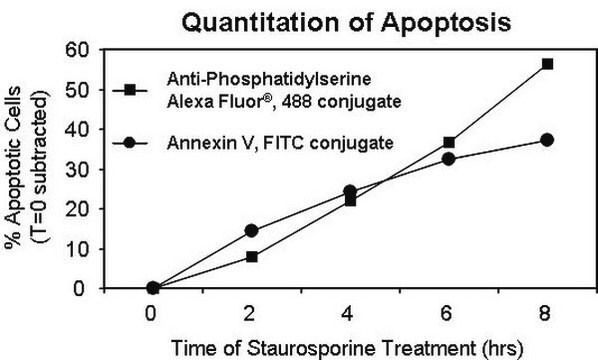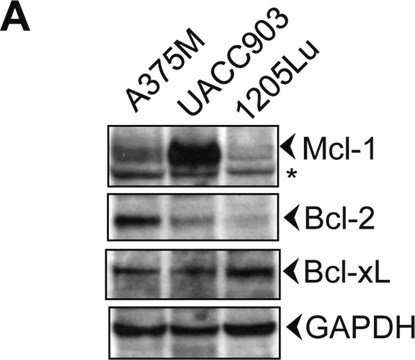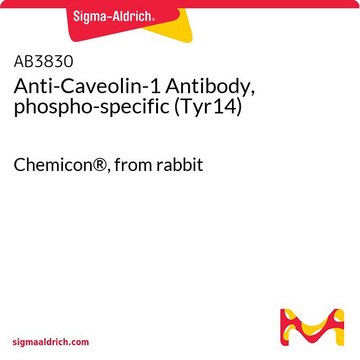05-480
Anti-Eck/EphA2 Antibody, clone D7
clone D7, Upstate®, from mouse
別名:
EPH receptor A2, Epithelial cell kinase, Tyrosine-protein kinase receptor ECK, ephrin receptor EphA2, epithelial cell receptor protein tyrosine kinase, protein tyrosine kinase, receptor protein tyrosine kinase regulated by p53 and E2F-1
About This Item
おすすめの製品
由来生物
mouse
品質水準
抗体製品の状態
purified immunoglobulin
抗体製品タイプ
primary antibodies
クローン
D7, monoclonal
化学種の反応性
mouse, canine, human, rat, bovine
メーカー/製品名
Upstate®
テクニック
activity assay: suitable
immunocytochemistry: suitable
immunoprecipitation (IP): suitable
western blot: suitable
アイソタイプ
IgG1
NCBIアクセッション番号
UniProtアクセッション番号
輸送温度
dry ice
ターゲットの翻訳後修飾
unmodified
遺伝子情報
bovine ... Epha2(512798)
human ... EPHA2(1969)
詳細
Protein kinases are enzymes that transfer a phosphate group from a phosphate donor, generally the g phosphate of ATP, onto an acceptor amino acid in a substrate protein. By this basic mechanism, protein kinases mediate most of the signal transduction in eukaryotic cells, regulating cellular metabolism, transcription, cell cycle progression, cytoskeletal rearrangement and cell movement, apoptosis, and differentiation.
特異性
免疫原
アプリケーション
ニューロサイエンス
成長円錐及び軸策ガイダンス
A previous lot of this antibody has been reported to have been used in an immunoprecipitation autophosphorylation assay, using a Mn-PIPES reaction buffer (Romer, L., 1994).
Immunoprecipitation:
A previous lot of this antibody has been reported to immunoprecipitate Eck from 500 µg of a human breast epithelial cell line which had been lysed in TBS containing 1% Triton X-100. Use 1-4 µg per reaction.
Immunocytochemistry:
A previous lot of this antibody has been reported to immunostain Eck in human, mouse and rat epithelial cells fixed with 3.7% formaldehyde solution and permeabilized with 0.5% Triton X-100 in TBS.
品質
Western Blot Analysis:
0.5-2 µg/mL of this lot detected Eck in RIPA lysates from human A431 and previously from foreskin fibroblasts, murine 3T3/A31 and rat L6 cells.
ターゲットの説明
物理的形状
保管および安定性
Handling Recommendations:
Upon receipt, and prior to removing the cap, centrifuge the vial and gently mix the solution. Aliquot into microcentrifuge tubes and store at -20°C. Avoid repeated freeze/thaw cycles, which may damage IgG and affect product performance. NOTE: Variability in freezer temperatures below -20°C may cause glycerol-containing solutions to become frozen during storage.
アナリシスノート
Positive Antigen Control: Catalog #12-301, non-stimulated A431 cell lysate. Add 2.5µL of 2-mercaptoethanol/100µL of lysate and boil for 5 minutes to reduce the preparation. Load 20µg of reduced lysate per lane for minigels.
その他情報
法的情報
免責事項
適切な製品が見つかりませんか。
製品選択ツール.をお試しください
保管分類コード
10 - Combustible liquids
WGK
WGK 1
適用法令
試験研究用途を考慮した関連法令を主に挙げております。化学物質以外については、一部の情報のみ提供しています。 製品を安全かつ合法的に使用することは、使用者の義務です。最新情報により修正される場合があります。WEBの反映には時間を要することがあるため、適宜SDSをご参照ください。
Jan Code
05-480:
試験成績書(COA)
製品のロット番号・バッチ番号を入力して、試験成績書(COA) を検索できます。ロット番号・バッチ番号は、製品ラベルに「Lot」または「Batch」に続いて記載されています。
ライフサイエンス、有機合成、材料科学、クロマトグラフィー、分析など、あらゆる分野の研究に経験のあるメンバーがおります。.
製品に関するお問い合わせはこちら(テクニカルサービス)







